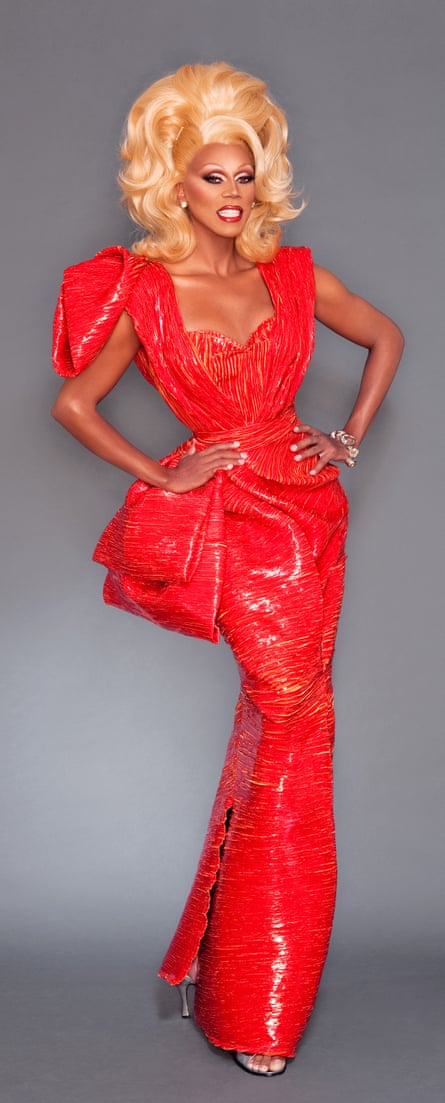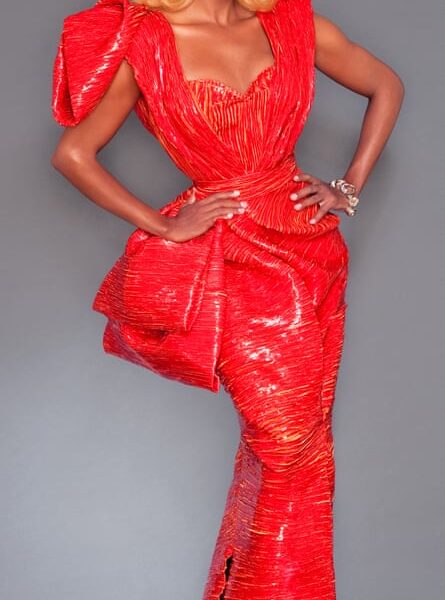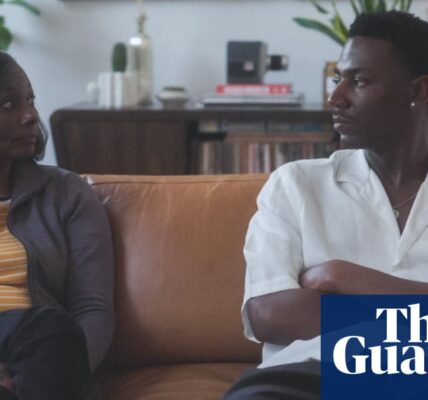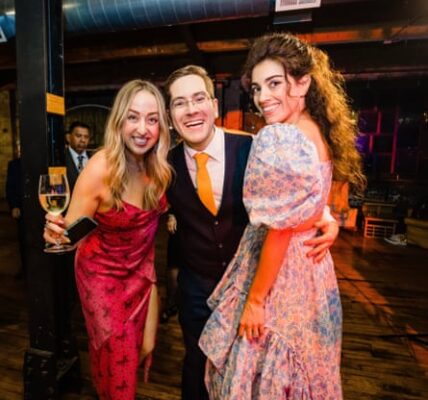RuPaul’s memoir, “The House of Hidden Meanings,” is a thought-provoking blend of reflection, self-importance, and insight.
T
At the end of each RuPaul’s Drag Race season, the popular drag queen reality show that has won Emmy awards, there is a moment where the host asks the finalists to give advice and encouragement to their younger selves. Despite having seen this happen numerous times (since the show’s beginning in 2009, there have been 16 US seasons, 20 international versions, 8 all-star seasons, and 2 celebrity spin-offs), it never fails to emotionally impact viewers, making them shed tears even if they have become cynical. RuPaul Charles, the host, reflects on his own journey in The House of Hidden Meanings, recalling moments from being homeless in California to being backstage at Versace with supermodels.
This memoir covers a wide range of emotions, ranging from shocking to poignant. It is filled with egotistical moments and wise insights, with equal parts of LSD-inspired epiphanies and valuable lessons on sobriety and personal growth (complete with mantras). RuPaul’s voice can be clearly heard in every sentence, with his signature wit, humor, and knack for epigrams. He shares his characteristic cadences and references to popular culture, which have become synonymous with his TV persona. We also discover the origins of some of his famous phrases, like “Why don’t you pick one up and smoke it sometime?” inspired by a 1960s cigar advertisement featuring Mae West. Additionally, he discusses the impact of his role models, including Diana Ross and the unapologetically rebellious Cher.
RuPaul Andre Charles was born in 1960 in San Diego, California, a city that was known for its predominant whiteness, conservatism, and segregation. It was not until he took the bus to visit the beach that people gave him second glances. He credits his love for performing to his desire to impress his mother, Toni, who was a complex and emotionally volatile woman. In one impactful moment, she threatened to set her husband’s car on fire, causing the young RuPaul to dissociate. His charming but unreliable father, Irving, left with his mistress, leaving behind his daughters and being neglectful towards his unconventional and feminine son.
What follows is a dizzyingly fast-paced account of RuPaul’s roundabout rise to fame (first predicted by a psychic, a prophecy RuPaul seems to take at face value). He starts off in Atlanta, flipping cars for his cocaine-smoking uncle Gerald, then gets involved in the local DIY punk and new wave scene, starting a succession of bands with progressively more terrible names (RuPaul and the U-Hauls, Wee Wee Pole), eventually winning over New York’s cold and unwelcoming crowds.
Each vignette is told with swift efficiency, resembling a well-practiced anecdote. Without the continuous entertainment provided by these stories, they may become tedious. On one occasion, he breaks into sobs after facing an enraged cocaine dealer. In the very next scene, he retrieves a Prince vinyl from a blazing building. The celebrity memoir wouldn’t be complete without some settling of scores, as he calls out club promoters for their mistreatment and recounts a unsettling encounter with Madonna who gave him a disdainful look and seethed with fury when he entered the room.

Display the image in full screen mode.
The main idea of the book is that what we perceive as reality is actually a construct. As a child, while watching television, RuPaul realizes that not only are the actors playing roles, but everyone else is as well. He comes to the belief that life is meaningless and anyone who takes it seriously is missing the point, after his first experience with acid. This belief is reinforced multiple times throughout his life. During a drag show, his boyfriend mentions the phrase “You’re born naked, and the rest is drag” (often attributed to RuPaul, but here credited to drag queen Lakesha Lucky). This moment feels like a revelation and like he has discovered the key to understanding the universe. However, the idea of peeling back layers and revealing the truth is mentioned repeatedly in the book with no real explanation. The reader is left to wonder whether the joke being played is harmless, irreverent, or something more nihilistic.
He delves into the specific details of sexuality and power, exploring the emotional turmoil of feeling like an outsider among those around him. He reflects, “I was so different, so unlike others in this world. My height, race, artistry, and femininity made me feel like I did not fit into the hierarchy of desirable gay men.” Through drag, he found a way to break free from societal constraints and achieve a level of status that had always seemed out of reach. In his writing, he also considers the power dynamics between himself and his now-husband, Georges LeBar, at the beginning of their relationship. He acknowledges the impact of their age and celebrity status on their psychological well-being.
At times, there are statements that lack introspection and make one question if an editor should have intervened. For instance, in the early stages, the author asserts that the Black individuals in his San Diego neighborhood acquired a “slave mentality,” attributing it to their southern roots and implying it is rooted in fear. The French are also portrayed as arrogant, superior, and even rude. RuPaul has faced controversy before, such as in 2018 when he had to apologize for comments he made to the Guardian about whether transgender women should be allowed on his show. In a recent profile in the New Yorker, he staunchly defended the fracking activities on his husband’s 60,000-acre ranch in Wyoming.
Neither incident makes it into the memoir, which ends in the mid-1990s, around the time RuPaul presented the Brit awards with “my new friend Elton John”, with a seeming digression about renovating a condo in Miami that ends up leading to rehab and 12-step meetings. There are some surprising omissions: only half a paragraph is devoted to the Aids crisis, before turning the attention back to RuPaul; there is no mention of his brief but culturally significant friendship with Nirvana.
Since receiving a prediction from a psychic, RuPaul has continuously constructed a personal mythos. This has included strategically placing “RuPaul is red hot” advertisements on telephone poles in 1980s New York as well as popularizing the catchphrase “available on iTunes” through Drag Race. As RuPaul’s fame expands globally, The House of Hidden Meanings aims to reinforce his countercultural image by delving into his roots as a “genderfuck anarchist drag” performer. This comes amid reports that contestants on his shows often accumulate significant debt to afford the extravagant outfits required. Despite his longstanding presence in the public eye, RuPaul has remained a mysterious and enigmatic figure. However, in this work, he opens up and offers insight into the experiences that have shaped him and his unconventional perspectives. It also serves as a nostalgic reminder of a time when a resourceful twenty-something could arrive in New York with only a small suitcase and still achieve success through their wit, charm, and unwavering self-confidence.
Source: theguardian.com




